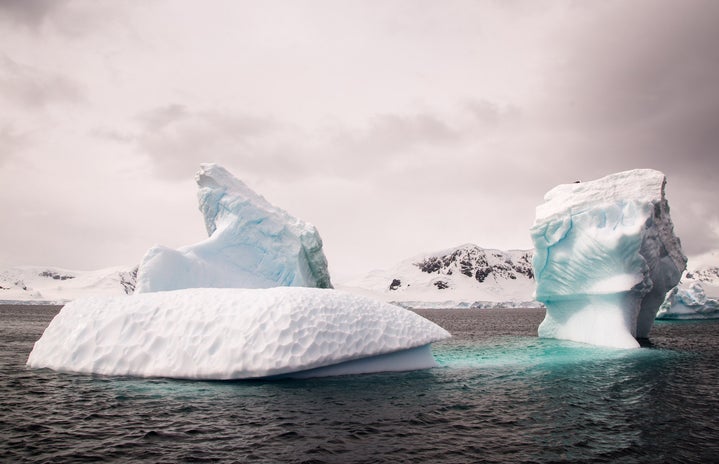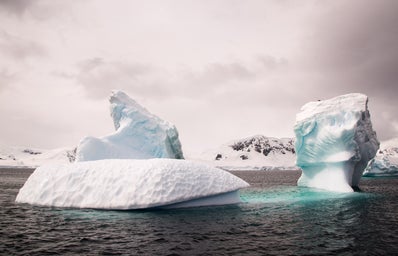Some people say water is the very thing that unites us, but it may soon become the one that tears us apart. In school, we learn about the importance of water. Whether it’s through advertisements on TV or social media, or whether it’s through environmental committees, there is always a stress placed on the importance of saving this valuable resource. However, as a society we’re failing to understand the importance of water fast enough; we’ve simply become used to taking water for granted.
Canada is one of the leading countries when it comes to freshwater and potable water availability, thanks to the Great Lakes being some of the largest bodies of freshwater in the world. Unfortunately, some countries don’t have such natural reserves, and rely on the import and purchasing of water from places like Canada. Because freshwater is depleting on a global scale, eventually it will carry strong economic implications.
Not all countries will be able to cope when this kind of change happens. It is important to think about what will happen to drought-prone countries like Morocco, Ethiopia, or the U.S. The increase in the demand for water is coupled with a decreased supply of it from freshwater lakes and rivers. As a result, people will have to look elsewhere for potable water to drink. This may not be realistic, as a lot of drinkable water may be in the ground, or in polar ice caps. This will only contribute to the water scarcity problem.
Fortunately, there is hope! Ironically about 70% of the world is just water, and most of that water is non-potable (i.e., it is salty ocean water that we cannot drink). Desalination, the process of removing dissolved salt from ocean water, is an up-and-coming technology that many countries in the U.A.E. are beginning to use. Although it seems like a great way to use the resources available to our advantage, it can be costly when thinking about it holistically. Would the economy of a water-scarce country be able to handle such an addition? Additionally, where would the removed salt end up? If there isn’t a purpose for the extracted sea salt, then we may end up with ‘salt-fills’, similar to landfills. These can be damaging to local ecosystems where organisms can only live at a specific salinity level. They can also create dead zones, or areas with low oxygen and nutrients, where few organisms can survive, further impacting biodiversity. An example of this type of environment can be observed in the Red Sea.
I recently came across an article written by the Massachusetts Institute of Technology (MIT), where researchers explored the idea of developing a portable desalination unit. The portable desalination unit doesn’t require the extensive pumps and filters used in conventional desalination and can be bought for only $50. It can be useful for remote and coastal regions whose residents may not have the proper facilities in place to access clean drinking water.
The ice in the North Pole is another possible source of freshwater. Because of its natural state, it would be difficult to transform and transport it as potable water. Furthermore, the North Pole does not belong to any one specific country. There is a possibility that this may affect political relations in the future if any one country decides to ‘claim’ that specific source of freshwater.
The monetary value of water could also negatively affect our society. Water ties our societies together. After the gym, you find yourself guzzling water from your water bottle. After playing your favorite sport, nothing feels more refreshing than a cold glass of water. As the demand for water increases, the price of water flowing to our homes could increase. As a result, there might be a limit placed on individuals’ daily water consumption.
It is also important to think about the role water plays for everything non-human. We share this world with many other species, so evidently, humans won’t be the only ones affected by a globally diminished water supply. The lack of water will also take a toll on the environment. Human actions, such as technological advancements and demographic patterns, are linked to the growing issue of climate change and global warming.
Anthropogenic activities have changed precipitation patterns in watersheds, a section of land where rainwater flows through rivers and collects in a central area. The change in precipitation patterns also leads to changes in rainfall timing and location. This change can negatively impact the organisms living in these habitats by introducing stressors, which, as a result, have a direct impact on their populations and the biodiversity in these places.
A change in rainfall patterns can also cause some bodies of water to desiccate or dry out. The Aral Sea is an appropriate example of this. Geographic mapping over some years has shown that the Aral Sea has shrunk in size and is expected to continue to shrink as time goes on.
Evidently, there are many negative effects that follow the depletion of our water sources. Many of these effects can begin to be noticed in as early as a couple of years if we, as a society, don’t make some serious changes. Personally, I do not think we, at an individual level, are at fault for depleting water sources. Maybe it’s the way our society has simply developed as businesses competing against each other, with little to no regard for any of the larger, more present issues at hand. We’ve all been forced into the same system from the moment we entered this world–strings pulling us in directions here and there and draining us of our creativity–our freedom of thought. It has shielded many of us from recognizing inbound issues, such as our precious natural reserves trickling to extinction. As it turns out, we the people, have very little voice in face of major corporations and governments tightly regulating our consumption and daily activities.
It is safe to say that water is a highly valued and priceless resource. The future scarcity it faces will only contribute to the water crisis worldwide. Fortunately, there are effective strategies and techniques we can begin to employ to reduce the chances of losing this valuable resource. For starters, we can advocate for better water management systems by lobbying governments and supporting environmental groups such as water charities. We can also help promote ‘cleaner’ agricultural practices (by having agriculturalists reduce pesticide and herbicide use in their crops), which can limit the pollution of groundwater sources.
Additionally, we can start with our local communities by establishing a common base to connect to students who would like to learn more about depleting water. For example, we can start a club on campus to advocate for efficient and effective water conservation. This type of initiative can help raise more awareness on the issue and pressure governments into making changes in water systems. Fundraising can also help support charities and water groups, but can also be used towards developing eco-friendly systems for water management on campus.
These are only some of the strategies we can use, and there are definitely many more that can help us become more sustainable moving forward. Ultimately, it is up to us to decide what’s to come for water in the future.


